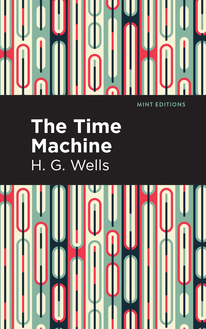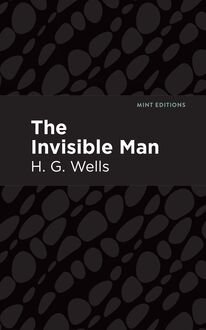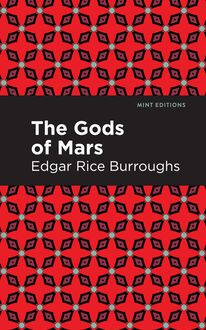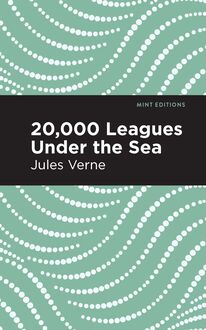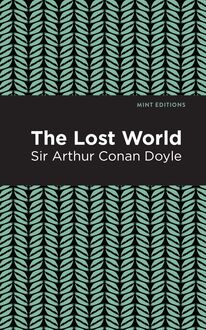-
 Univers
Univers
-
 Ebooks
Ebooks
-
 Livres audio
Livres audio
-
 Presse
Presse
-
 Podcasts
Podcasts
-
 BD
BD
-
 Documents
Documents
-
- Cours
- Révisions
- Ressources pédagogiques
- Sciences de l’éducation
- Manuels scolaires
- Langues
- Travaux de classe
- Annales de BEP
- Etudes supérieures
- Maternelle et primaire
- Fiches de lecture
- Orientation scolaire
- Méthodologie
- Corrigés de devoir
- Annales d’examens et concours
- Annales du bac
- Annales du brevet
- Rapports de stage
La lecture à portée de main
Vous pourrez modifier la taille du texte de cet ouvrage
Découvre YouScribe en t'inscrivant gratuitement
Je m'inscrisDécouvre YouScribe en t'inscrivant gratuitement
Je m'inscrisEn savoir plus
Vous pourrez modifier la taille du texte de cet ouvrage
En savoir plus

Description
The Iron Heel (1907) is a novel by American writer Jack London. A groundbreaking work of dystopian science fiction, The Iron Heel was inspired by London’s socialist views and belief in an eventual global upheaval. Although his predictions proved wrong for the United States of the early-twentieth century, London was recognized by such figures as George Orwell for his foresight regarding the rise of fascism in Europe. The novel is told from the perspective of a scholar named Anthony Meredith who lives in the post-revolutionary Brotherhood of Man in the year 2600 AD. Having discovered the “Everhard Manuscript,” a record of the rise of the Oligarchy in twentieth century America that provides the bulk of the narrative, Meredith writes the introduction and extensive footnotes throughout. The Manuscript is the story of Avis Everhard, a young woman who becomes radicalized by the rise of authoritarianism in the United States and eventually leads a failed revolution against the Oligarchy. While the frame narrative provides a sense of hope for the future of humanity, the Manuscript describes a society crushed by the consolidation of economic and political power by a wealthy few, who control all aspects of everyday life and rule with the help of a ruthless mercenary army. As she rises through the ranks of the resistance movement, Everhard comes to understand that the sacrifices required of a hero must be made for a future she holds little hope of seeing. With a beautifully designed cover and professionally typeset manuscript, this edition of Jack London’s The Iron Heel is a classic of American literature reimagined for modern readers.
Sujets
Informations
| Publié par | Mint Editions |
| Date de parution | 21 juin 2021 |
| Nombre de lectures | 0 |
| EAN13 | 9781513275093 |
| Langue | English |
| Poids de l'ouvrage | 1 Mo |
Informations légales : prix de location à la page 0,0500€. Cette information est donnée uniquement à titre indicatif conformément à la législation en vigueur.
Extrait
The Iron Heel
Jack London
The Iron Heel was first published in 1907.
This edition published by Mint Editions 2021.
ISBN 9781513270098 | E-ISBN 9781513275093
Published by Mint Editions®
minteditionbooks.com
Publishing Director: Jennifer Newens
Design & Production: Rachel Lopez Metzger
Typesetting: Westchester Publishing Services
“At first, this Earth, a stage so gloomed with woe
You almost sicken at the shifting of the scenes.
And yet be patient. Our Playwright may show
In some fifth act what this Wild Drama means.”
C ONTENTS F OREWORD I. M Y E AGLE II. C HALLENGES III. J OHNSON ’ S A RM IV. S LAVES OF THE M ACHINE V. T HE P HILOMATHS VI. A DUMBRATIONS VII. T HE B ISHOP ’ S V ISION VIII. T HE M ACHINE B REAKERS IX. T HE M ATHEMATICS OF A D REAM X. T HE V ORTEX XI. T HE G REAT A DVENTURE XII. T HE B ISHOP XIII. T HE G ENERAL S TRIKE XIV. T HE B EGINNING OF THE E ND XV. L AST D AYS XVI. T HE E ND XVII. T HE S CARLET L IVERY XVIII. I N THE S HADOW OF S ONOMA XIX. T RANSFORMATION XX. T HE L AST O LIGARCH XXI. T HE R OARING A BYSMAL B EAST XXII. T HE C HICAGO C OMMUNE XXIII. T HE P EOPLE OF THE A BYSS XXIV. N IGHTMARE XXV. T HE T ERRORISTS
F OREWORD
I t cannot be said that the Everhard Manuscript is an important historical document. To the historian it bristles with errors—not errors of fact, but errors of interpretation. Looking back across the seven centuries that have lapsed since Avis Everhard completed her manuscript, events, and the bearings of events, that were confused and veiled to her, are clear to us. She lacked perspective. She was too close to the events she writes about. Nay, she was merged in the events she has described.
Nevertheless, as a personal document, the Everhard Manuscript is of inestimable value. But here again enter error of perspective, and vitiation due to the bias of love. Yet we smile, indeed, and forgive Avis Everhard for the heroic lines upon which she modelled her husband. We know today that he was not so colossal, and that he loomed among the events of his times less largely than the Manuscript would lead us to believe.
We know that Ernest Everhard was an exceptionally strong man, but not so exceptional as his wife thought him to be. He was, after all, but one of a large number of heroes who, throughout the world, devoted their lives to the Revolution; though it must be conceded that he did unusual work, especially in his elaboration and interpretation of working-class philosophy. “Proletarian science” and “proletarian philosophy” were his phrases for it, and therein he shows the provincialism of his mind—a defect, however, that was due to the times and that none in that day could escape.
But to return to the Manuscript. Especially valuable is it in communicating to us the Feel of those terrible times. Nowhere do we find more vividly portrayed the psychology of the persons that lived in that turbulent period embraced between the years 1912 and 1932—their mistakes and ignorance, their doubts and fears and misapprehensions, their ethical delusions, their violent passions, their inconceivable sordidness and selfishness. These are the things that are so hard for us of this enlightened age to understand. History tells us that these things were, and biology and psychology tell us why they were; but history and biology and psychology do not make these things alive. We accept them as facts, but we are left without sympathetic comprehension of them.
This sympathy comes to us, however, as we peruse the Everhard Manuscript. We enter into the minds of the actors in that long-ago world-drama, and for the time being their mental processes are our mental processes. Not alone do we understand Avis Everhard’s love for her hero-husband, but we feel, as he felt, in those first days, the vague and terrible loom of the Oligarchy. The Iron Heel (well named) we feel descending upon and crushing mankind.
And in passing we note that that historic phrase, the Iron Heel, originated in Ernest Everhard’s mind. This, we may say, is the one moot question that this new-found document clears up. Previous to this, the earliest-known use of the phrase occurred in the pamphlet, “Ye Slaves,” written by George Milford and published in December, 1912. This George Milford was an obscure agitator about whom nothing is known, save the one additional bit of information gained from the Manuscript, which mentions that he was shot in the Chicago Commune. Evidently he had heard Ernest Everhard make use of the phrase in some public speech, most probably when he was running for Congress in the fall of 1912. From the Manuscript we learn that Everhard used the phrase at a private dinner in the spring of 1912. This is, without discussion, the earliest-known occasion on which the Oligarchy was so designated.
The rise of the Oligarchy will always remain a cause of secret wonder to the historian and the philosopher. Other great historical events have their place in social evolution. They were inevitable. Their coming could have been predicted with the same certitude that astronomers today predict the outcome of the movements of stars. Without these other great historical events, social evolution could not have proceeded. Primitive communism, chattel slavery, serf slavery, and wage slavery were necessary stepping-stones in the evolution of society. But it were ridiculous to assert that the Iron Heel was a necessary stepping-stone. Rather, today, is it adjudged a step aside, or a step backward, to the social tyrannies that made the early world a hell, but that were as necessary as the Iron Heel was unnecessary.
Black as Feudalism was, yet the coming of it was inevitable. What else than Feudalism could have followed upon the breakdown of that great centralized governmental machine known as the Roman Empire? Not so, however, with the Iron Heel. In the orderly procedure of social evolution there was no place for it. It was not necessary, and it was not inevitable. It must always remain the great curiosity of history—a whim, a fantasy, an apparition, a thing unexpected and undreamed; and it should serve as a warning to those rash political theorists of today who speak with certitude of social processes.
Capitalism was adjudged by the sociologists of the time to be the culmination of bourgeois rule, the ripened fruit of the bourgeois revolution. And we of today can but applaud that judgment. Following upon Capitalism, it was held, even by such intellectual and antagonistic giants as Herbert Spencer, that Socialism would come. Out of the decay of self-seeking capitalism, it was held, would arise that flower of the ages, the Brotherhood of Man. Instead of which, appalling alike to us who look back and to those that lived at the time, capitalism, rotten-ripe, sent forth that monstrous offshoot, the Oligarchy.
Too late did the socialist movement of the early twentieth century divine the coming of the Oligarchy. Even as it was divined, the Oligarchy was there—a fact established in blood, a stupendous and awful reality. Nor even then, as the Everhard Manuscript well shows, was any permanence attributed to the Iron Heel. Its overthrow was a matter of a few short years, was the judgment of the revolutionists. It is true, they realized that the Peasant Revolt was unplanned, and that the First Revolt was premature; but they little realized that the Second Revolt, planned and mature, was doomed to equal futility and more terrible punishment.
It is apparent that Avis Everhard completed the Manuscript during the last days of preparation for the Second Revolt; hence the fact that there is no mention of the disastrous outcome of the Second Revolt. It is quite clear that she intended the Manuscript for immediate publication, as soon as the Iron Heel was overthrown, so that her husband, so recently dead, should receive full credit for all that he had ventured and accomplished. Then came the frightful crushing of the Second Revolt, and it is probable that in the moment of danger, ere she fled or was captured by the Mercenaries, she hid the Manuscript in the hollow oak at Wake Robin Lodge.
Of Avis Everhard there is no further record. Undoubtedly she was executed by the Mercenaries; and, as is well known, no record of such executions was kept by the Iron Heel. But little did she realize, even then, as she hid the Manuscript and prepared to flee, how terrible had been the breakdown of the Second Revolt. Little did she realize that the tortuous and distorted evolution of the next three centuries would compel a Third Revolt and a Fourth Revolt, and many Revolts, all drowned in seas of blood, ere the world-movement of labor should come into its own. And little did she dream that for seven long centuries the tribute of her love to Ernest Everhard would repose undisturbed in the heart of the ancient oak of Wake Robin Lodge.
A NTHONY M EREDITH
Ardis,
November 27, 419 B.O.M.
I
M Y E AGLE
T he soft summer wind stirs the redwoods, and Wild-Water ripples sweet cadences over its mossy stones. There are butterflies in the sunshine, and from everywhere arises the drowsy hum of bees. It is so quiet and peaceful, and I sit here, and ponder, and am restless. It is the quiet that makes me restless. It seems unreal. All the world is quiet, but it is the quiet before the storm. I strain my ears, and all my senses, for some betrayal of that impending storm. Oh, that it may not be premature! That it may not be premature! 1
Small wonder that I am restless. I think, and think, and I cannot cease from thinking. I have been in the thick of life so long that I am oppressed by the peace and quiet, and I cannot forbear from dwelling upon that mad maelstrom of death and destruction so soon to burst forth. In my ears are the cries of the stricken; and I can see, as I have seen in the past, 2 all the marring and mangling of the sweet, beautiful flesh, and the souls torn with violence from proud bodies and hurled to God. Thus do we p
-
 Univers
Univers
-
 Ebooks
Ebooks
-
 Livres audio
Livres audio
-
 Presse
Presse
-
 Podcasts
Podcasts
-
 BD
BD
-
 Documents
Documents
-
Jeunesse
-
Littérature
-
Ressources professionnelles
-
Santé et bien-être
-
Savoirs
-
Education
-
Loisirs et hobbies
-
Art, musique et cinéma
-
Actualité et débat de société
-
Jeunesse
-
Littérature
-
Ressources professionnelles
-
Santé et bien-être
-
Savoirs
-
Education
-
Loisirs et hobbies
-
Art, musique et cinéma
-
Actualité et débat de société
-
Actualités
-
Lifestyle
-
Presse jeunesse
-
Presse professionnelle
-
Pratique
-
Presse sportive
-
Presse internationale
-
Culture & Médias
-
Action et Aventures
-
Science-fiction et Fantasy
-
Société
-
Jeunesse
-
Littérature
-
Ressources professionnelles
-
Santé et bien-être
-
Savoirs
-
Education
-
Loisirs et hobbies
-
Art, musique et cinéma
-
Actualité et débat de société
- Cours
- Révisions
- Ressources pédagogiques
- Sciences de l’éducation
- Manuels scolaires
- Langues
- Travaux de classe
- Annales de BEP
- Etudes supérieures
- Maternelle et primaire
- Fiches de lecture
- Orientation scolaire
- Méthodologie
- Corrigés de devoir
- Annales d’examens et concours
- Annales du bac
- Annales du brevet
- Rapports de stage
